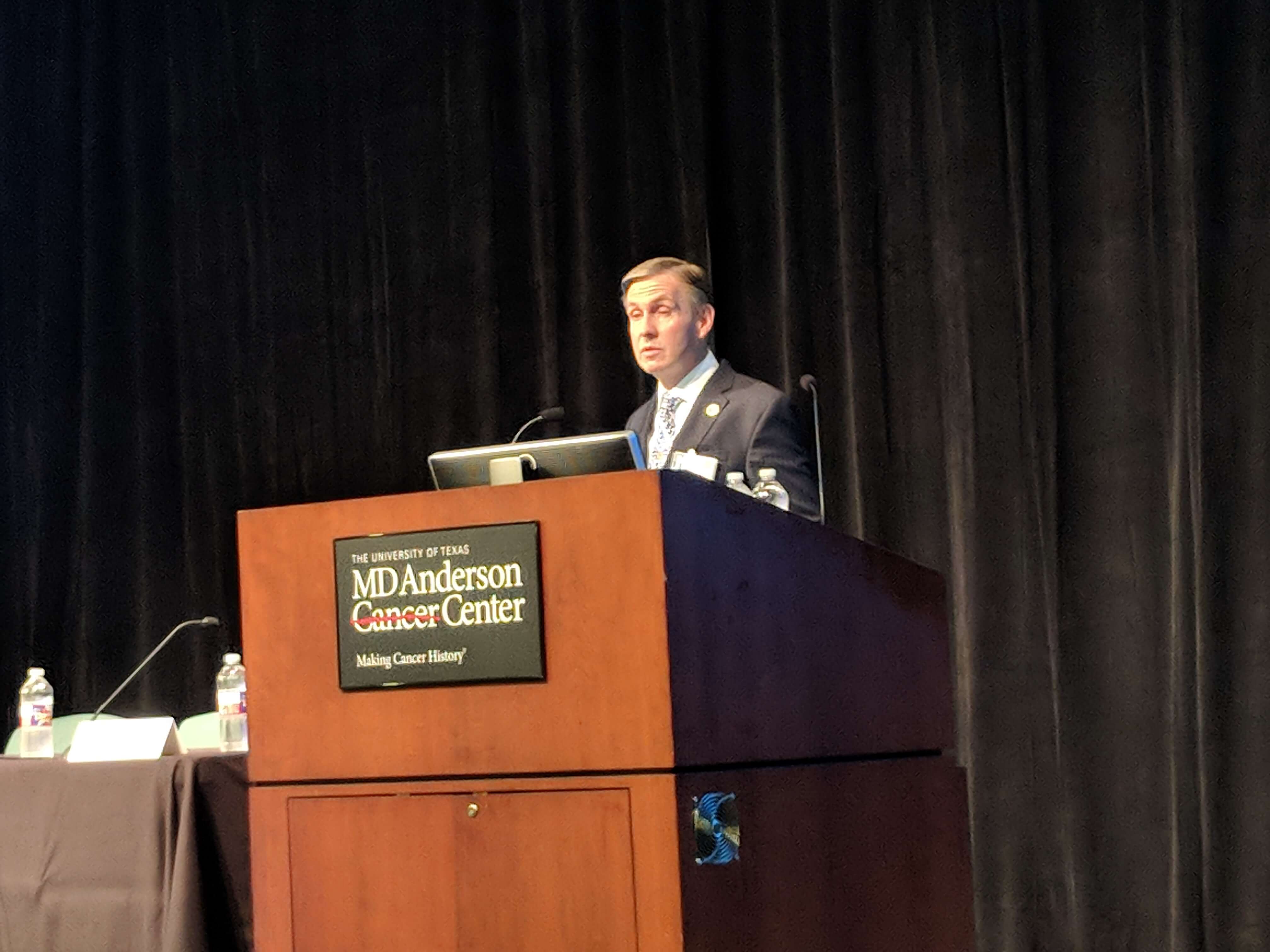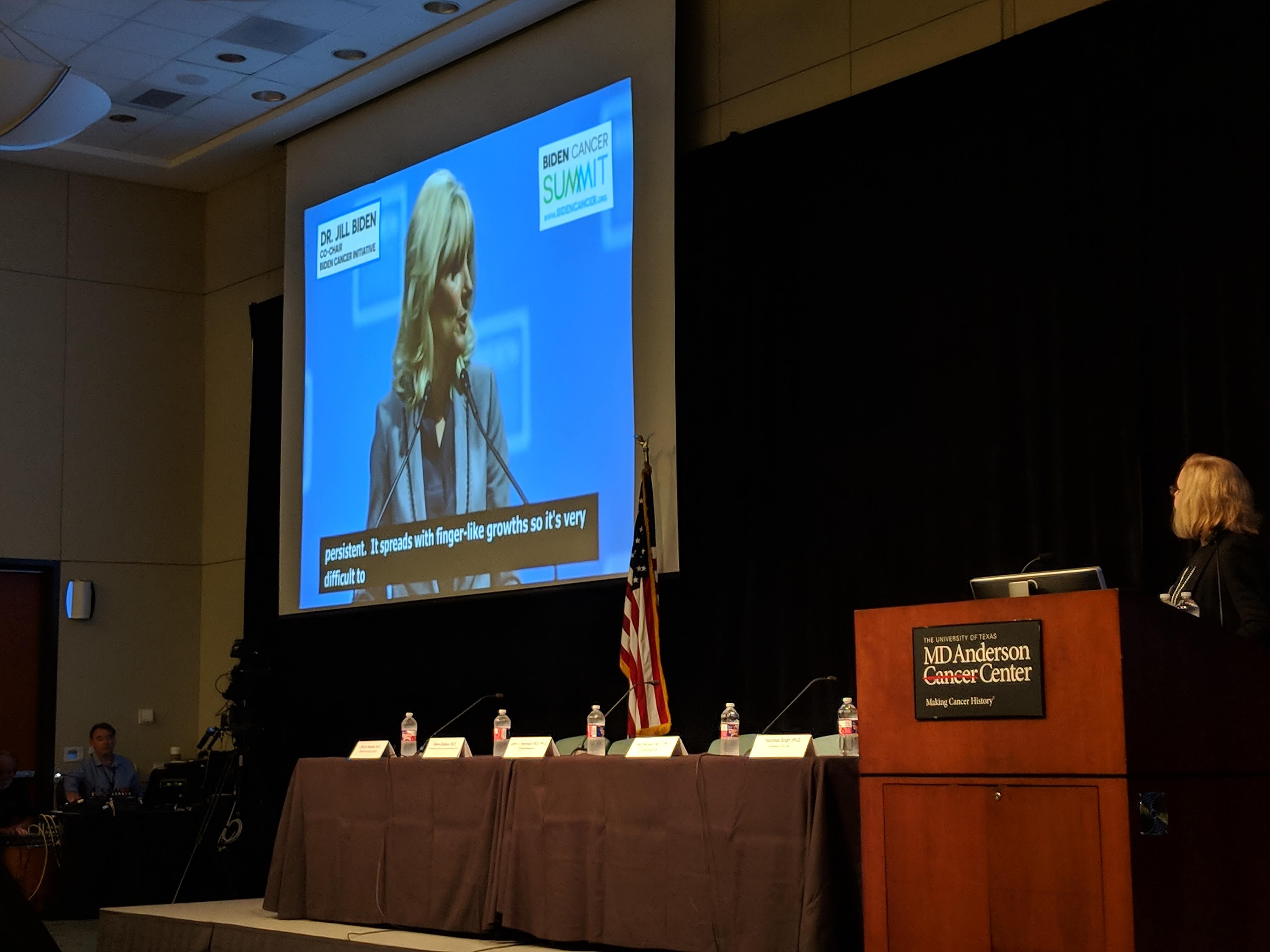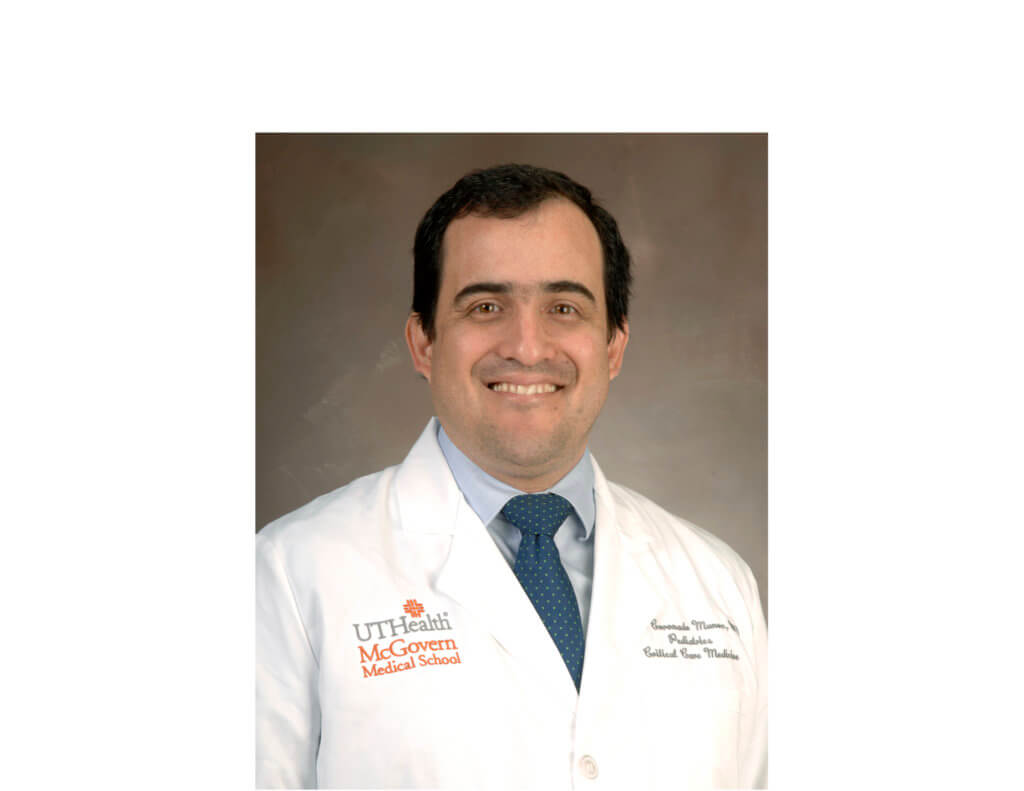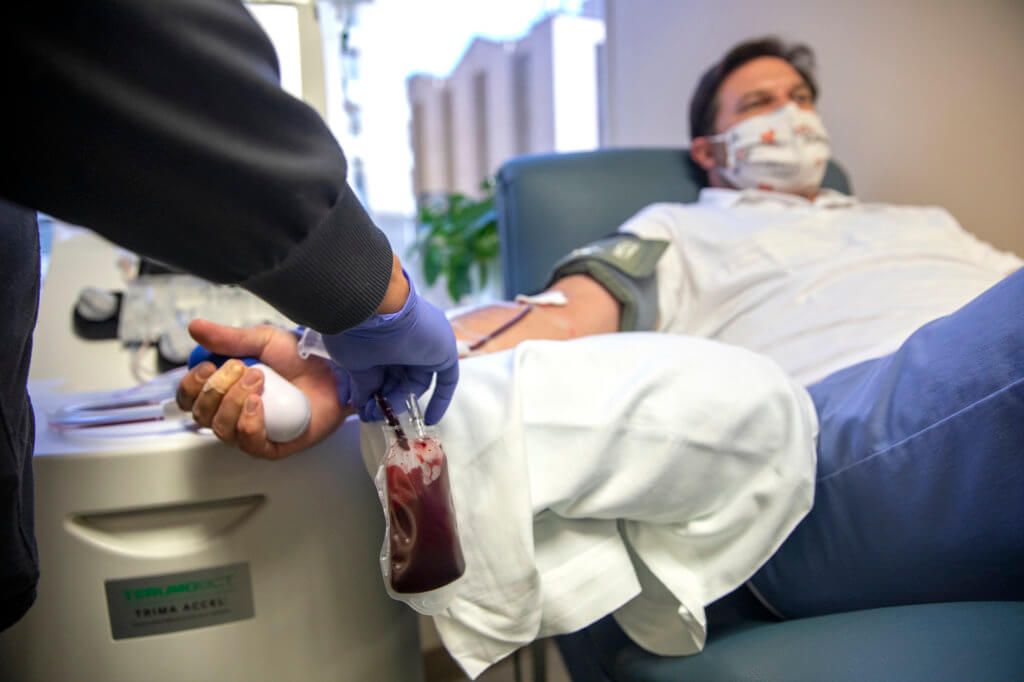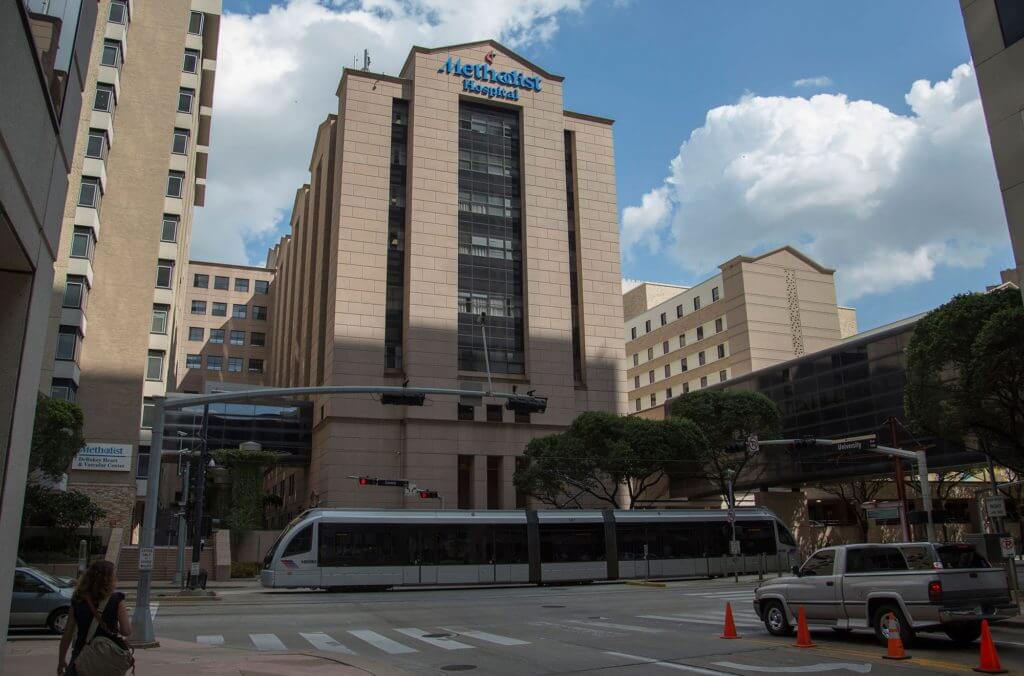MD Anderson hosts a virtual Biden Cancer Community Summit
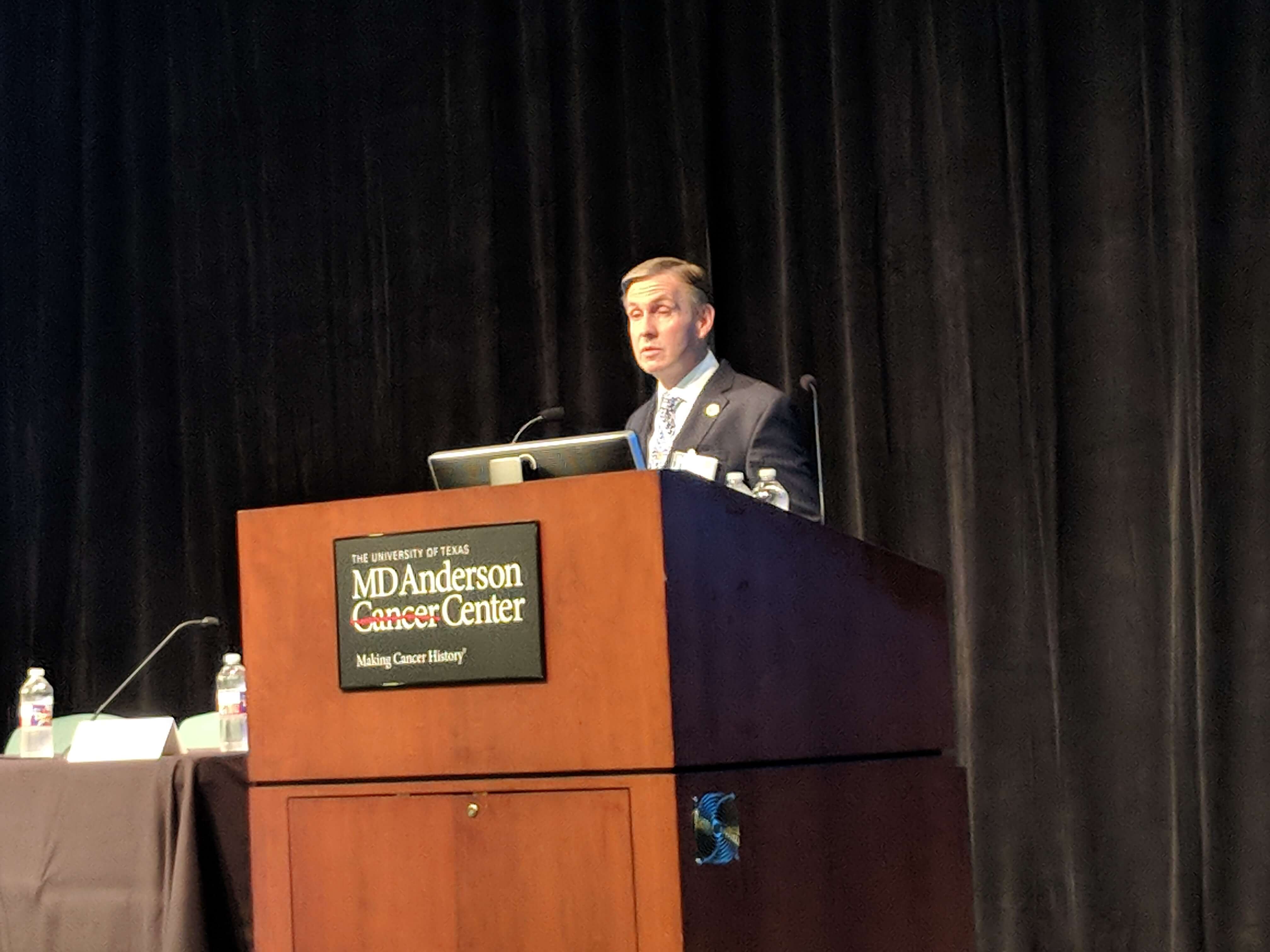
The University of Texas MD Anderson Cancer Center joined more than 450 communities and institutions across the country last week in hosting a local Biden Cancer Community Summit.
“By engaging in these meaningful conversations, I’m confident in the innovative solutions that will become our key weapons in the fight to end cancer,” said Peter Pisters, M.D., president of MD Anderson, during his welcome remarks to a crowded room at the cancer center and to those viewing via livestream.
The Biden Cancer Initiative was founded in 2017 by former Vice President Joe Biden and his wife, Jill Biden, to “develop and drive implementation of solutions to accelerate progress in cancer prevention, detection, diagnosis, research, and care, and to reduce disparities in cancer outcomes,” according to the nonprofit’s website. Beau Biden, the vice president’s son, died in 2015 of glioblastoma—a brain cancer—and was treated in 2013 at MD Anderson.
As part of the summit’s ongoing dialogue about advancement in cancer research, prevention, diagnosis and care, Pisters announced that Lorna Haughton McNeill, Ph.D., MPH, chair of the department of Health Disparities Research, was among the 10 recipients of the Biden Cancer Initiative’s inaugural FIERCE Awards. The awards recognize individuals and organizations for their transformative impact on the lives of cancer patients. McNeill was awarded in the category of “reducing cancer disparities” for creating Project CHURCH, which aims to reach and engage African American communities in cancer prevention and research.
MD Anderson’s gathering also featured livestreamed remarks by former Second Lady Jill Biden, who spoke from Washington about the origins of the Biden Cancer Initiative as well as bridging the gap between scientists, patients, advocates and nonprofits.
“Patients feel overwhelmed by medical jargon and are confused by paths on their medical journey,” said Biden, a veteran educator who holds a doctorate. “We are working to find solutions and a better way to redesign the cancer experience.”
In addition, the summit featured two panel discussions led by Carin Hagberg, M.D., an anesthesiologist who serves as MD Anderson’s chief academic officer. “Improving Cancer Outcomes: Priorities in Cancer Research, Care & Prevention” explored opportunities to accelerate progress against cancer, such as advancing immunotherapies, increasing clinical trial participation and reducing disparities in cancer care.
The second panel—“The Patient Experience: Improving Access, Navigation & Survivorship”—featured professionals on the front lines of care with cancer survivors who spoke about the cancer journey.
This is the second summit of its kind. The first was in 2016 following the launch of the national Cancer Moonshot, inspired by MD Anderson’s Moon Shots Program, established in 2012.

